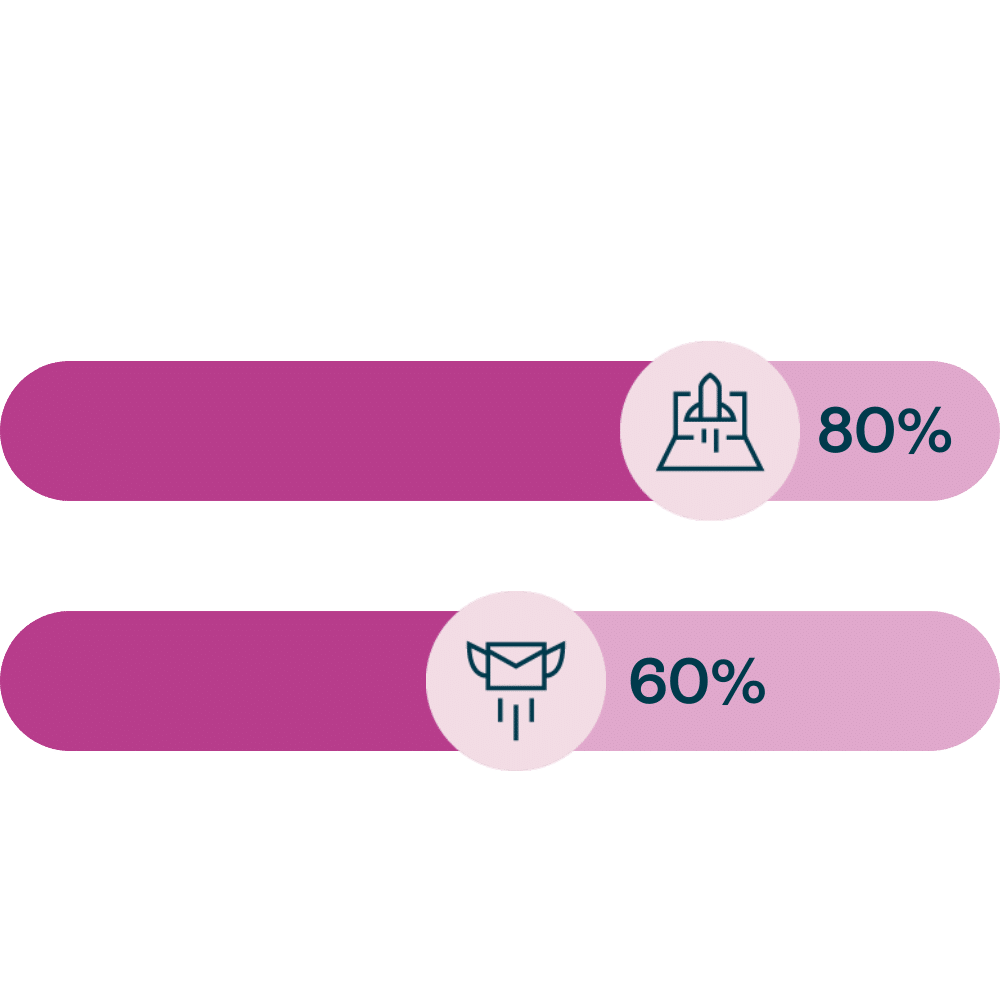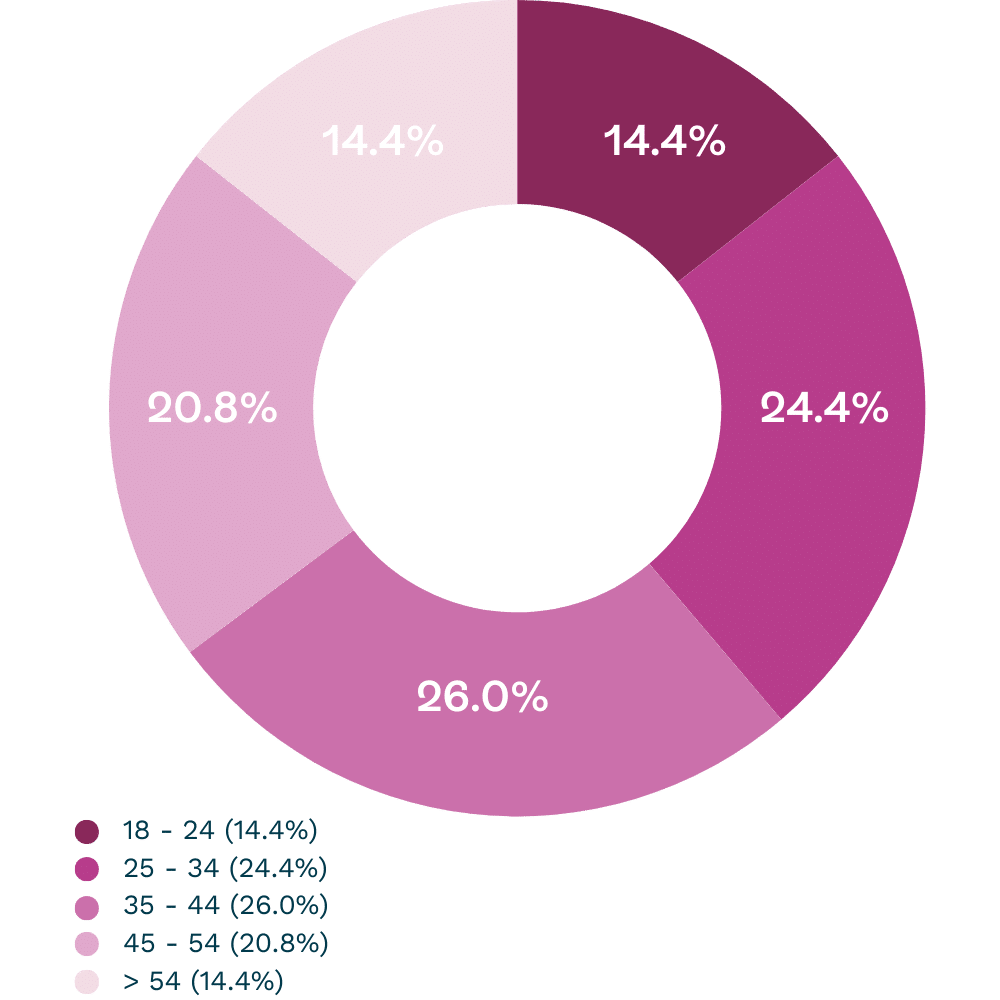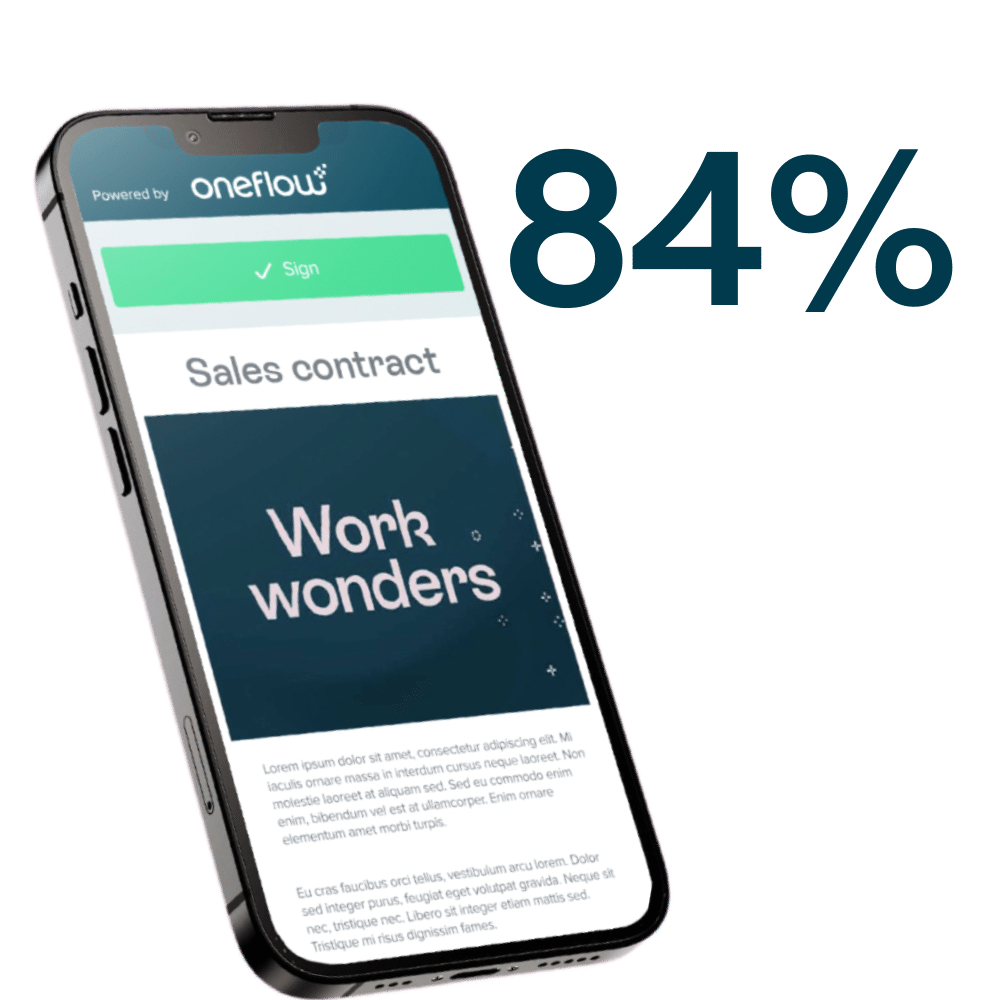

The Contract Compass Report
A Quarterly Study of Contracts

Contracts are the most vital part of a business.
They’re the lifeblood of every organization. A company could not exist without them. Yet, when you think about companies, you don’t think about contracts. They remain omnipresent while being invisible to the naked eye.
Contracts are crucial to companies all over the world. That’s why Oneflow did an in-depth analysis of the state of contracts today. And to look at where they’re headed in the future. We wanted to know what are the most
salient issues that are plaguing the contract management process at companies. What does the future of contract management look like? What rising tools and technologies are on the horizon?


Contracts are everywhere
What outsiders can’t see is that contracts are the glue that holds a company together. Hiring employees? They signed a contract. Buying or leasing office space? A contract was signed. Selling your product or service? Your customer signed a contract to close the deal. Contracts touch almost every aspect of a company. They’re some of the most vital documents that a company possesses. To say that contracts are important is an understatement.
By the end of this contract compass report, you’ll learn:
The importance of contract automation to companies
The biggest reason deals break down
How digital the future of contracts and e-signatures really is
The low cost but high impact that digital contracts have


What is contract management?
We define contract management as the process of managing the agreements that you, either individually or as a business make with other parties. This process spans across the contract lifecycle from pre-sign to post-sign, covering the renewing, renegotiating, executing, complying, archiving, and storing of contracts.
Methodology
We wanted to get the pulse of where contract management is today, and where it’s headed. So we sought out the answers. We polled 250 business professionals across two continents and four countries with answers coming from Sweden, the Netherlands, the United Kingdom, and the United States.
In order to secure accurate data and results, we made sure to qualify each respondent works with contracts as a part of their job. By either creating, editing, sending or signing contracts as a part of their work duties.

Contracts are critical
63% ranked contract automation as important to their company
Contracts come in a variety of forms and use cases. Sales leads the way as the function that businesses use contracts for, but HR and Legal aren’t far behind at all. Respondents mentioned every industry possible when writing in answers to this question, consulting, freelancing etc.
However, the key takeaway is that contract automation IS an important issue for businesses. 63% ranked contract automation as important to their company. So this is an area in which companies are aware that automation is possible and will have a beneficial impact on their workflows and processes. It’s not an area to be ignored, or if it is, it’s to their peril.
Digital vs paper contracts in 2024

What would cause you not to sign a contract?
60% of respondents claim that a lack of clarity of clauses and terms in the contract would cause them to not sign the contract or progress further in the deal.

How many times do you open or read a contract before you sign?
40% of respondents open a contract at least four times before signing!


How do you sign a contract?
80% of respondents sign their contracts using electronic signatures.
60% of them use a mixture of written and electronic signatures.
The biggest hindrance to a contract getting signed is that the terms, clauses, or conditions are not clear. This is interesting because 40% of respondents open and read a contract at least 4 times before signing! To have counterparties opening the contract that many times, leaves lots of room for change and communication.
When you’re reaching an agreement, it’s only natural that edits are done before the deal is finalized. We can see that inflexible tools and contracts lead to unsigned contracts. That appears to be the case for signing contracts as well as a majority use various methods to sign.

Speed up those signatures

How long does it take to get a contract signed after it’s sent?
49% of respondents get a contract signed within one to three days!

How many stakeholders on average are involved in a negotiation before a contract is signed?
54% of respondents report that there are at least 3 stakeholders involved in the negotiation process before a contract is signed.


Have any of your deals or contracts been affected by the tool or technology that you use for signature collection?
4 out of every ten deals are affected by the tool used for signature collection.
The speed with which a contract is signed in 2023 is something to be happy about. With the majority of contracts being signed within 3 days thanks to easy-to-use digital contracts and simple signature collection, it’s a huge step in the right direction. While the average number of stakeholders involved in a contract is at least 3, the more there are the more complicated it can get.
However, with the advancement of contract management tools and e-signature software,
the friction that would formerly slow deals down
and bring them to a screeching halt instead enables the contract process to be faster than ever before. Especially for larger deals, at enterprise companies, and in B2B sales cycles. Those situations are exactly where a contract management tool can speed up the process.
Changes to a contract
are often the dealbreaker


What are the top reason(s) you don’t get a contract signed?
64% of respondents reported that the top reason that they don’t get a contract signed is due to change of terms!


What’s the most important to you when signing a contract?
75% of respondents claim that the most important thing to them when signing a contract is that the information is accurate.
It’s very clear that when signing a contract or getting one signed, any changes made to the contract can and likely will slow down the deal! It completely checks out, as when you’re signing something it should all be in order, and last-minute edits, changes, or requests toss a wrench in the process and serve as a death knell for the deal.
To combat that businesses and employees are looking for flexibility in their contracts. So that any last-minute changes that come up are seamless to the flow of signing, not increasing the friction. The best way to close a deal without any hiccups derailing it is to have the tools at your disposal that allow for better communication inside of the contract.
The future of contracts
will take place in cyberspace


Where do you store your contracts?
57% of respondents store their contracts electronically, either on their computers or in the cloud.
Contract management has an outlook that’s in line with many other areas. It’s heading to a strictly digital process. And digital contract management solutions will become the de facto way to sign. 84% of respondents said that having the ability to sign a contract on any device is the most important feature for the future of contracts.
Digital contracts are a crucial part of the future of contracts. Storing contracts is done digitally for the majority of businesses. Big storage cabinets have been replaced by cloud applications. Pen and paper have been replaced by e-signatures and digital contracts. Signing anywhere, on any device is something that people expect from their contracts.
Contract communication leaves room for improvement


How many stakeholders on average are involved in a negotiation before a contract is signed?
76% of respondents use email as a form of communication when getting their contracts signed.
Communication is key
That’s repeated ad nauseam. Email is still the main way that contract communication is done, as 76% of respondents use email to sign a contract. However, issues can arise from solely relying on email for contract communication. Long email threads are known to slow deals down and cause headaches. Even worse, they raise security concerns and increase risk for companies. Long email threads are prone to errors that we as humans make all the time. Details can fall through the cracks and inaccurate information leads to delays on deals or outright missed opportunities.
The fact that so many people still rely on email threads for contract communication is a trend that is cause for concern.
All contract communication is better to be done inside the contract, where there’s a detailed audit log accessible only to those who have the authority to be involved in the process.


When you think about contracts, what
emotions come to mind?
As we can see, contracts stir up lots of emotions! They range from happy, to sad, to everything in between. Even a lack of interest in some. That’s what we are aiming to change as we continue to get the pulse on contracts.
Contracts should be a happy moment. A celebratory moment. It’s the culmination of everyone coming together on an agreement. In future editions we’re excited to see how the feelings and emotions with contracts change and grow.
Another thing that we see though, is that contracts are a necessary part of running a successful business. And it’s apparent that impacts all areas of a company, as well as many of those who work inside businesses.
Charting the future of contracts
The future of contracts is digital. And the data we collected supports that assessment. Digital transformation contains many components such as automating many processes and streamlining workflows. One thing we can infer is that digital contracts will be a key success factor in successful digital transformations. Contract management solutions that automate the entire contract process, from pre-sign, e-sign, and post-sign, will enable companies to speed up processes and become more efficient and digitally proficient.
Business and commerce in general is rapidly becoming more digital, day after day. We see that with the way that companies use digital contracts in their operations. Agreements are reached and business flows. Electronic signatures and contract management solutions need to be flexible to handle the requirements of a hybrid, or digital commercial structure. Agreements can be versatile, and contract management solutions need to be as well.
In the current economic climate that we’re working in, cost-saving initiatives and productivity gains are being prioritized by companies worldwide. Finding those efficiencies and synergies can be easy wins that lead to money saved and hours gained. Contract automation is increasingly being viewed as a must-have for businesses in order to streamline processes. It’s a small investment for a huge impact on organizations of all sizes.
We forecast that next quarter contracts will have an even more influential role in digital efforts for companies, and impact their forecasts, operations and the core of their business. As the year heads towards a close, more deals will need to be done. More contracts will be signed, employees hired and agreements reached. Contracts, especially digital ones, have a huge part to play in the days and years to come as a cost-effective efficient solution.








